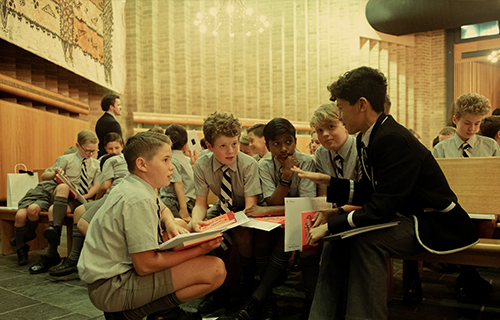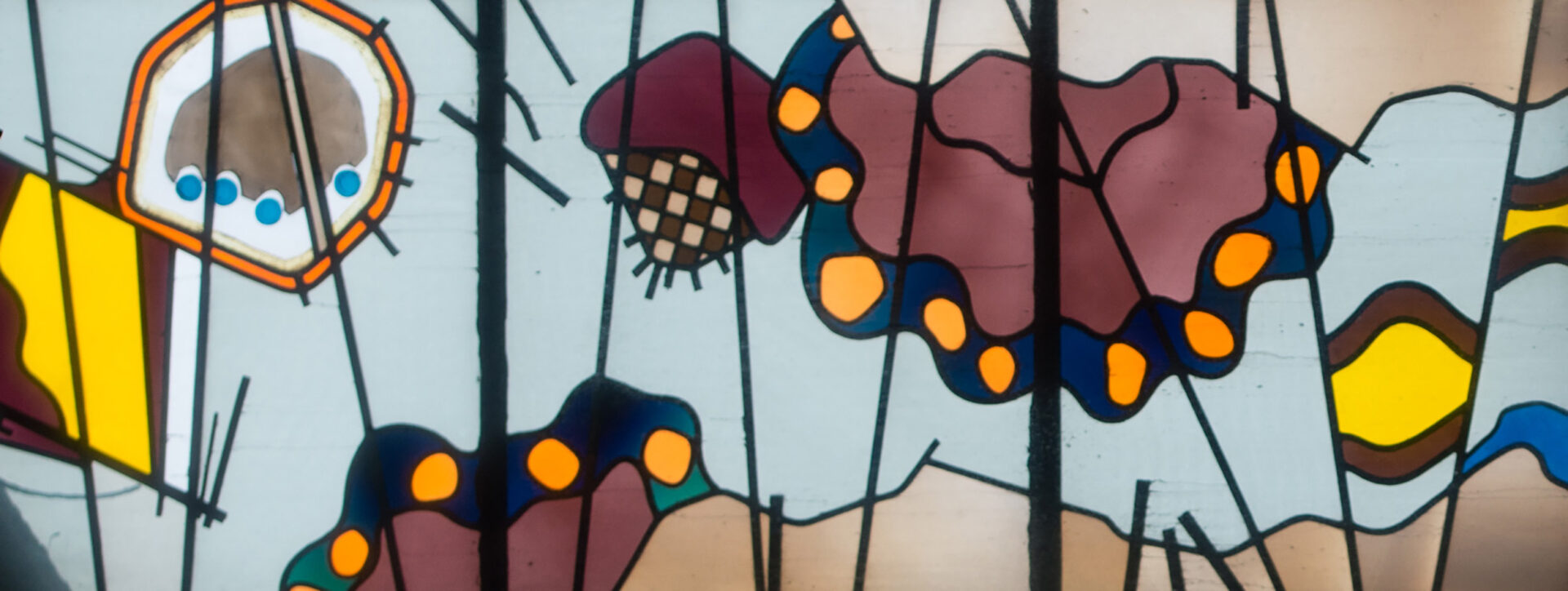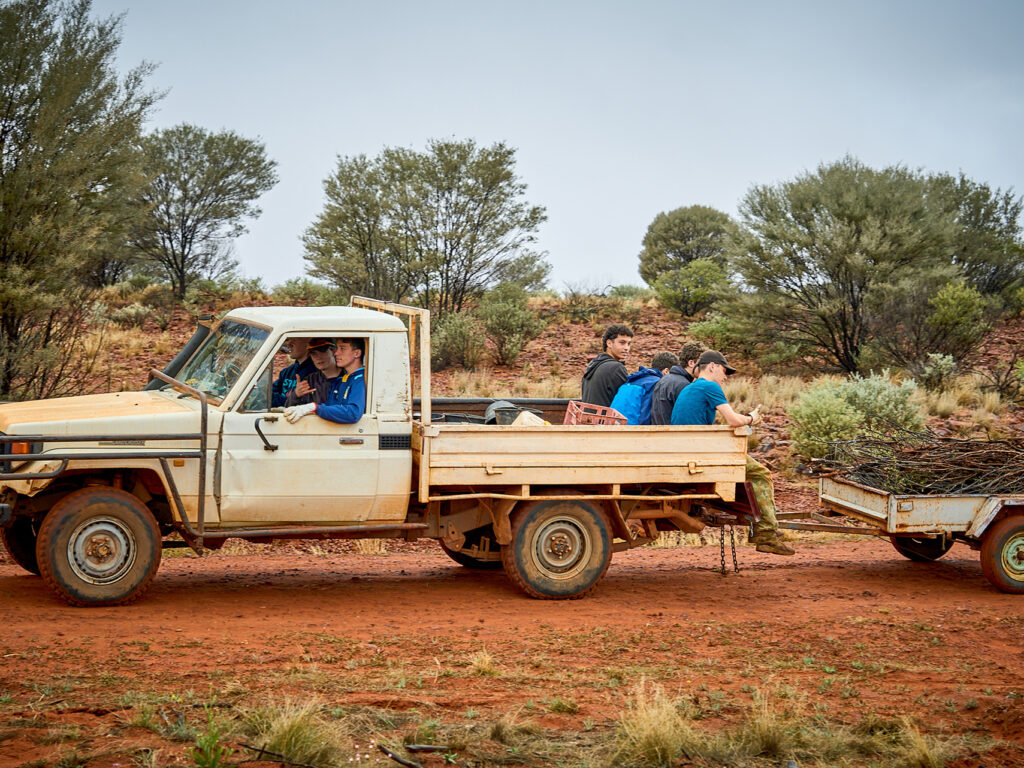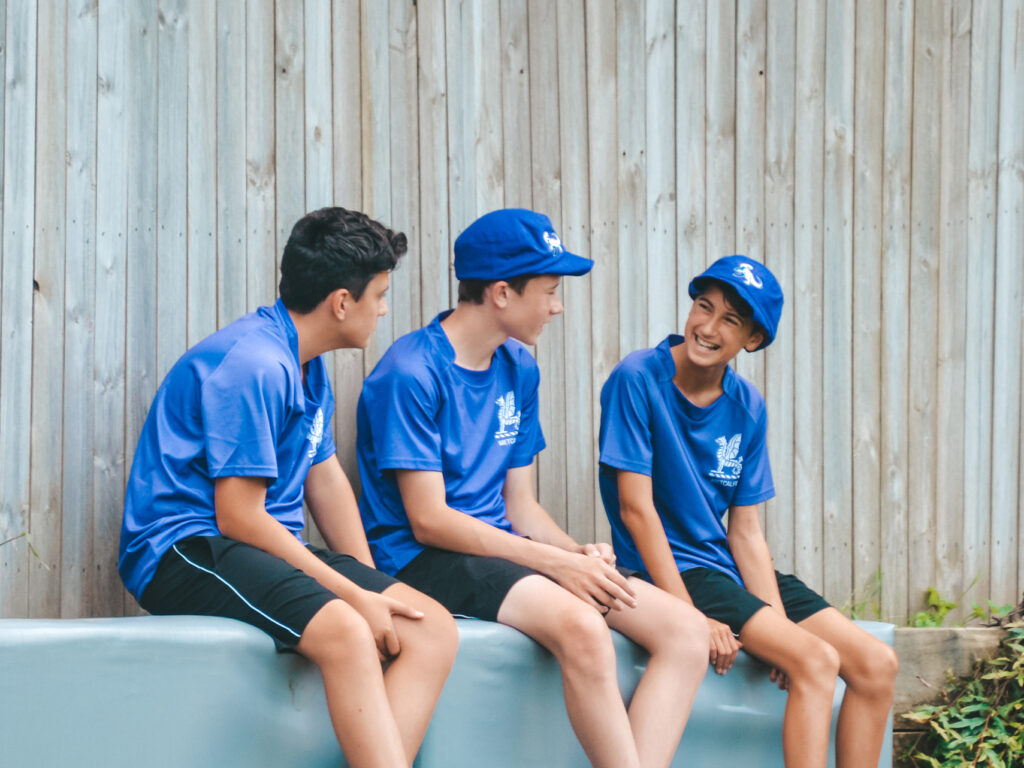Wellbeing
How We Care
One of the strengths behind how we care at Newington College is our structured wellbeing program. We base our program on the principles of ‘How to Live Well’ in a modern, diverse and vibrant world.
Each campus tailors the program to suit the needs of their students at age and stage appropriate levels and our program works hand-in-hand with the Learning and Teaching framework.
Building Character
The wellbeing program at Newington is a collaborative program between parents, teachers and students.
We consider good mental health and wellbeing to be of the utmost importance and a priority. Through a multitude of evidenced based programs, we strive to inform, and up-skill our students to be mentally strong, skilled in self-care, resilient and persistent in their lives at the College and beyond. We measure our success on the person that they become as a partner, parent, and community member, as they progress into and throughout adulthood.
We Want to Teach Our Students:
- to know and care for themselves, others and their communities
- how to be vulnerable to have an honest conversation about mental and emotional health
- to learn lifelong tools for mental and emotional flexibility and endurance
- to understand and develop good character traits and servant leadership skills
- to develop empathy, resilience and persistence.
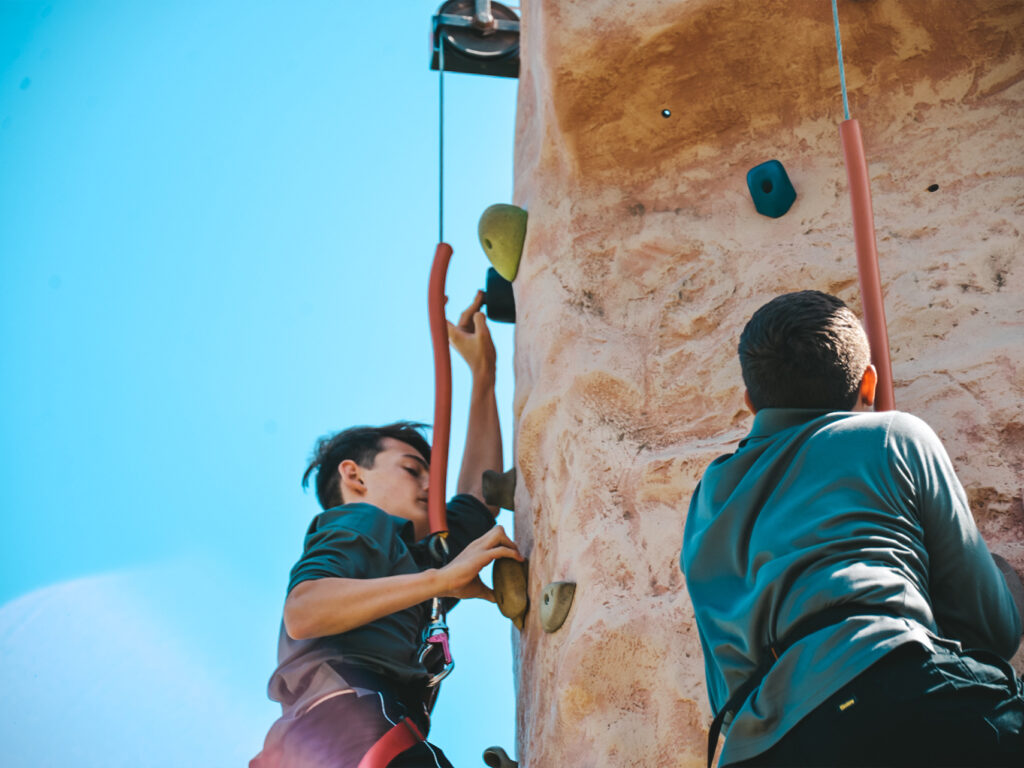
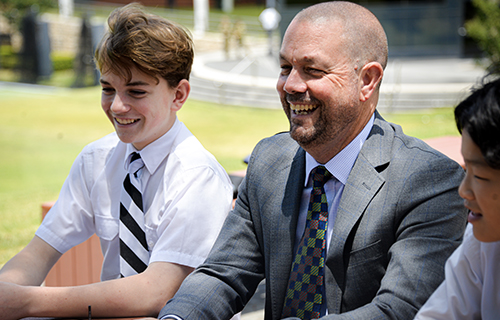
Knowing Oneself is an Important Step to Caring
At Stanmore 7-12, our wellbeing program transitions students to a deeper understanding of themselves as learners and caring members of a community.
We focus on knowing and caring for oneself, knowing and caring for others, and knowing and caring for our community.
Looking at ourselves deeply allows us to better know our strengths, and our values. This in turn supports the self-care frameworks that we instil in each student. We consider good Mental Health at the utmost importance and strive to instil knowledge and skills in each student to firstly identify their individual needs, and to have the knowledge and skills to provide themselves with the self-care required.
Our program allows students to focus on efforts and grit, and that joy and happiness does not necessarily come from the easy things in life. Accomplishments that require rigour and persistence provide wonderful opportunities for self-growth and assist in developing an open mindset that helps students question their limitations.
Learning How to Care from a Young Age
The Wellbeing program in both of our Preparatory schools is based on teaching students the concepts of mutual care and respect.
There is a strong emphasis on supporting each child to better understand themselves, others, and the world around them. Our teachers encourage each of our young students to be assured of their individual worth, and to be open to new experiences and challenges.
Learning about service, persistence, and empathy are all key themes of how we teach our youngest students how to care at Newington.
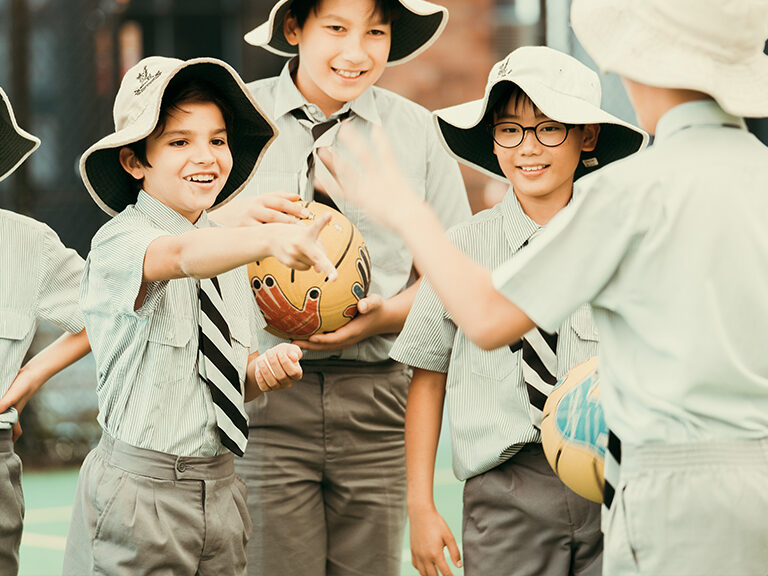
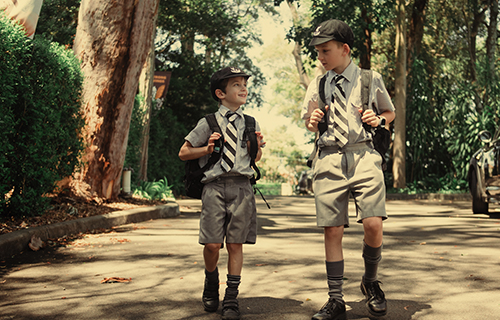
Building Relationships through the Buddy System
The Buddy Program pairs students in Kindergarten and Year 1 with students in Year 5 and Year 6.
This mentoring system benefits both students. It allows the older students to develop social and leadership skills by collaborating with their younger peers and it gives our youngest students the assurance that there is someone who will look out for them.
Second Step
Second Step is a program that addresses the social and emotional needs of young children in today’s society.
Through a multi-modal approach that is tailored to the age of the children, students engage in learning experiences within the units: Skills for Learning, Empathy, Emotion Management and Friendship Skills and Problem-Solving. Lessons may include puppets, video, songs and singing, movement and dancing and thinking strategies depending on the grade level.
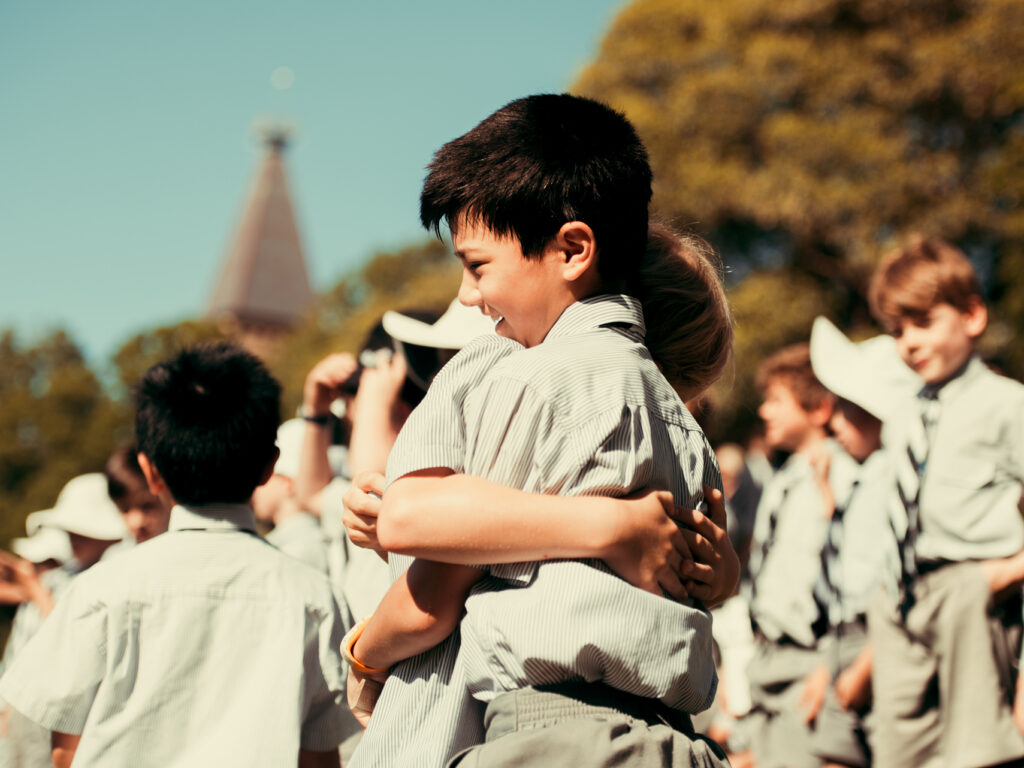
Learning to Care through the PYP at Lindfield
Lindfield is an authorised International Baccalaureate Primary Years Programme (PYP) school. This means that Lindfield has partnered with the IB to provide a Primary school education that is holistic, values-based and employs the latest best practice to help our students learn how to engage critically and effectively with the ever-changing world around them.
The IB PYP mission statement provides the inspiration and guidance for service and leadership at Lindfield Prep. The IB “aims to develop inquiring, knowledgeable and caring young people who help to create a better and more peaceful world through intercultural understanding and respect.”
IB learners are also encouraged to become “active, compassionate and lifelong learners who understand that other people, with their differences, can also be right.”
This powerful statement of intent is designed to encourage each student to think beyond themselves and their immediate environment and to see their place as part of a much greater global community – a community that has the potential to benefit greatly from their active citizenship.
All inquiries within the PYP are collaborations between students and teachers. This partnership is built upon trust and respect from the viewpoint of every contributor with every perspective seen as a valued perspective. When students have reached this understanding, they are truly maturing as citizens who can make a genuine difference within their community.
The attributes of the IB Learner Profile include notions such as open-minded, caring, principled and reflective. These qualities are embedded into the everyday learning of each student.
At Lindfield, social and leadership service programs are informed by the Action element of the IB; this is when all transdisciplinary aspects of the PYP come together into a purposeful, positive action reflecting understanding, integrity and respect. It is these initiatives that demonstrate a true engagement with learning, converting their knowledge and awareness into an action with the potential for untold benefit. At Lindfield these actions are cause for much celebration as students live their understanding of what it is to care, to respect and to lead.
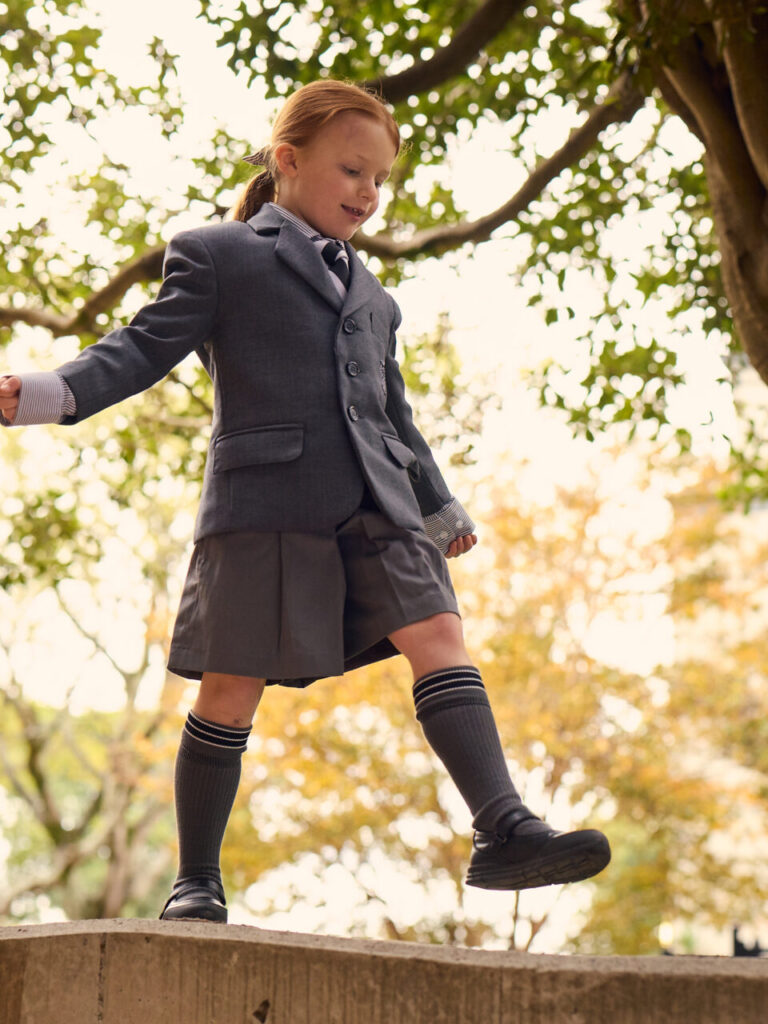
Counsellors
Our school counsellors are a vital component of the wellbeing program, helping students and parents deal with personal, emotional, educational and family issues.
We have three educational psychologists at our Stanmore Secondary campus.
Specifically, the counsellors spend time helping students to:
- develop lifelong skills to help them succeed interpersonally and academically so that they are prepared for obstacles that they may face
- actualise their potential and understand that their personal wellbeing and happiness is paramount in their lives
- gain a better understanding of the relationships between their own abilities, achievements, interests and opportunities
- gain a sense of personal worth, develop an accompanying trust and acceptance of others and develop responsibility for their choices and behaviours.
Mr Sahil Sharma is the counsellor (educational psychologist) for both of preparatory campuses.
Specifically, our counsellor supports students, parents and staff across:
- the wellbeing of all students
- working with staff to teach social skills
- assisting with the entry process of new students
- psycho-educational assessment of learning and academic progress
- individual and group counselling regarding issues that might impact on school adjustment
- the administration of anti-bullying surveys.
To Faith Add Knowledge
Our Chaplains play a key role in the development of our wellbeing program and provide a spiritual framework for the way we educate.
Our College motto, In Fide Scientiam – to Faith add Knowledge – reflects our belief that ‘faith’ and ‘knowledge’ are about balance. We hope our community can find a spiritual life of ‘faith’ that is informed by ‘knowing’ their God through religious teachings and everyday life experiences.
Living Christian values is a fundamental pillar in the way we build community, and as a school affiliated with the Uniting Church, we welcome students and families of all faiths and cultural backgrounds
